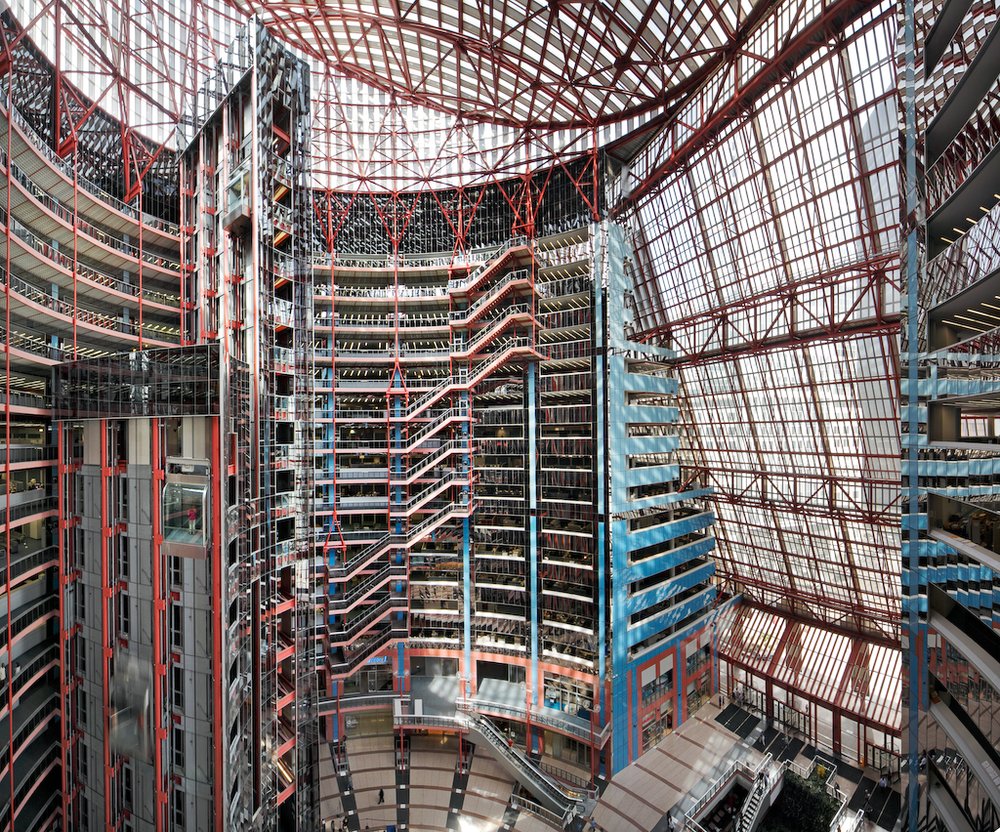Google has been a part of Atlanta for more than 20 years. There are more than 1,000 full-time Google employees in Georgia — in two offices in Atlanta and a data center in Douglas County — helping to build and support our products, and help our partners and customers across the South and nationally.
We recently opened our doors to the newest office space in Midtown Atlanta at the 1105 West Peachtree building. This new Google office encompasses 19 floors spanning 500,000 square feet, and is a part of our broader investment in local communities across the U.S.
Atlanta has a rich civil rights history and is home to top Historically Black Colleges and Universities (HBCUs) and tech talent. Continuing our long-term investment here will help support our Black Googler community in Atlanta, in line with our racial equity commitments.
Inspired by the city’s legacy for social change, our office was designed as an homage to the people of Atlanta, with each floor an ode to Atlanta’s cultural, musical and artistic history. We worked with more than 50 local and diverse companies to design and build the new space, including artwork from more than 20 local artists.
A giant heart outlining the Google Atlanta sign greets you in the lobby. One of the staircases features a rainbow design — in support and celebration of the LGBTQ+ community — inspired by the city’s nearby rainbow crosswalks. The WERD Cafe, our Googler cafeteria, is named for the first Black-owned and programmed U.S. radio station.
Our commitment to Atlanta extends far beyond the walls of our new office. In 2021, Google products helped provide $13.21 billion of economic activity for tens of thousands of Georgia businesses, nonprofits, publishers, creators and developers.
Today, we’re announcing a $1 million commitment to the Urban League of Atlanta to support their work in training underserved communities throughout Georgia. This grant will help jobseekers get digital skills training and place them in high-growth jobs.
On top of this, to bring equitable opportunities to more Georgians, we’re partnering with local community organizations and universities. We’re working with HBCUs like Clark Atlanta University and Spelman College to attract top talent, and partnering with the Technical College System of Georgia to offer Google Career Certificates to 22 colleges across the state at no cost.
Lastly, we are partnering with Mayor Andre Dickens and the Atlanta BeltLine to launch the Atlanta BeltLine Marketplace, an effort to help local Black, Latino and women-owned small businesses reach new customers by retrofitting rail cars into office spaces. We’re providing Wi-Fi for the rail containers, a complete suite of Google Nest products, Chromebooks and free digital skills training.
We look forward to continuing to support and partner with our customers, employees and local communities in Atlanta for years to come.






